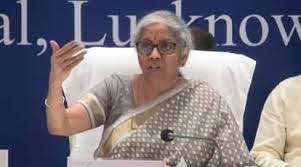
During a recent post-meeting media briefing, Union Finance Minister Nirmala Sitharaman addressed the ongoing debate about including petrol and diesel within the Goods and Services Tax (GST) framework. Currently, these fuels, along with natural gas and ATF, are not taxed under GST but are subject to VAT (Value-Added Tax), central excise duty, and central sales tax.
Sitharaman reiterated the Central Government’s intention to bring petrol and diesel under GST, as envisioned by former Finance Minister Arun Jaitley. However, she emphasized that the decision ultimately rests with the states. “The intent of the Central Government is clear, we want the GST to include petrol and diesel,” Sitharaman stated.
The inclusion of petrol and diesel in GST has been a topic of discussion for some time, with proponents highlighting potential benefits such as uniform taxation across states and simplified compliance procedures. However, concerns have also been raised about revenue implications for both the Centre and states.
In addition to the discussion on petrol and diesel, the 53rd GST Council meeting addressed several other key decisions aimed at easing compliance burdens for small and medium taxpayers. Some of the notable decisions include:
- Reduction of GST on all kinds of carton boxes from 18% to 12%, benefiting apple horticulturists and related industries in Himachal Pradesh.
- Setting monetary limits for tax department appeals, with thresholds of ₹20 lakh for GST Appellate Tribunal, ₹1 crore for the High Court, and ₹2 crore for the Supreme Court.
- Reduction of the maximum pre-deposit amount for filing an appeal to ₹20 crore for both CGST and SGST.
- Exemption of services provided by Indian Railways, such as platform tickets and retiring rooms, from GST.
- Exemption of hostel accommodation services outside educational institutions from GST if the cost is up to ₹20,000 and the stay is up to 90 days for students or working-class individuals.
The 53rd GST Council meeting, held after an eight-month gap, aimed to address various issues and streamline tax policies for better efficiency and compliance. These decisions reflect ongoing efforts to enhance the GST framework and cater to the needs of taxpayers across different sectors.
Sources By Agencies




